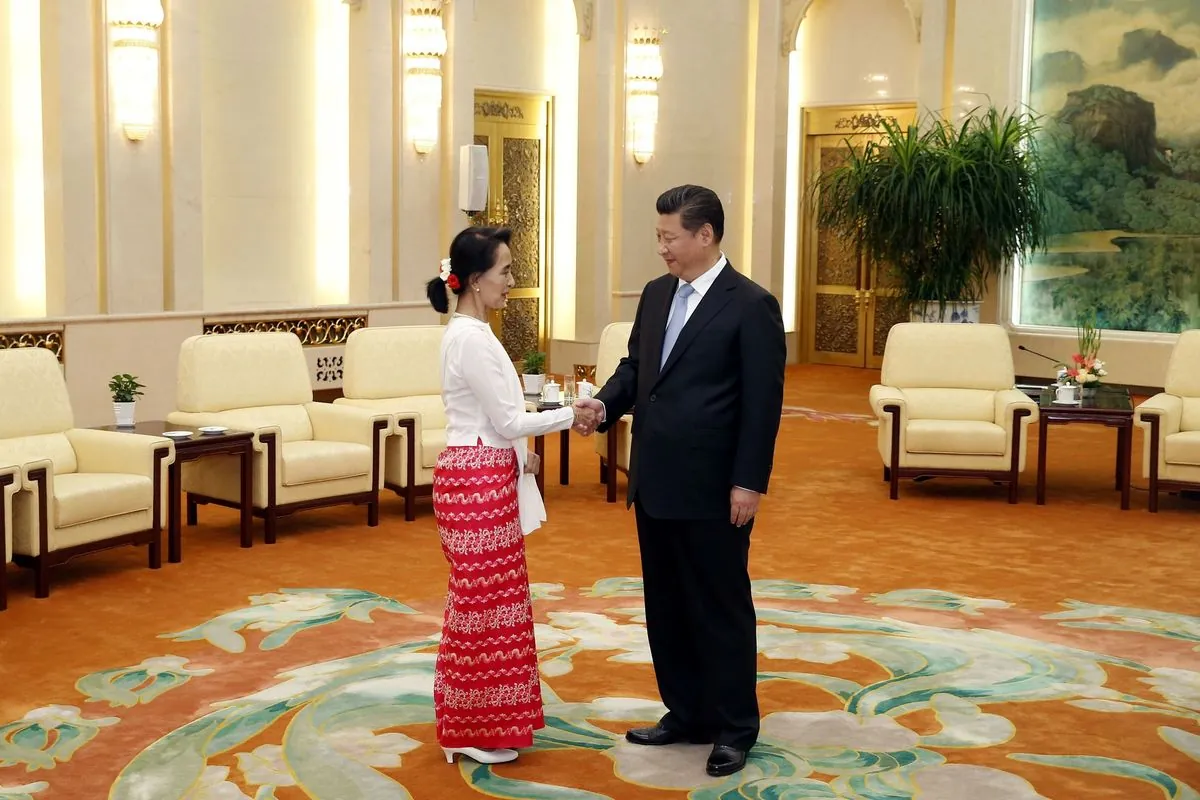India Extends Olive Branch to Myanmar's Opposition Forces
India invites Myanmar's junta opponents to New Delhi seminar, signaling a shift in engagement. The move comes amid concerns over border stability and stalled ASEAN peace efforts.

In a significant diplomatic move, India has extended invitations to political and military adversaries of Myanmar's ruling junta for a seminar in New Delhi. This development marks a notable shift in India's approach to the ongoing crisis in its neighboring country, which has been embroiled in civil conflict since the military coup in February 2021.
The seminar, scheduled for mid-November 2024, is set to be hosted by the government-funded Indian Council of World Affairs (ICWA). Among the invitees are representatives from the parallel National Unity Government (NUG) and ethnic minority rebel groups from the states of Chin, Rakhine, and Kachin, which border India. This marks the first formal engagement between India and these non-state actors, potentially opening new channels for dialogue in the region.
Sui Khar, vice chairman of the Chin National Front, confirmed their participation, stating:
"We are going to send representatives. This will be the first time, I think, formally, that India will engage with the non-state actors. This is a good, positive approach."
India's decision to engage with Myanmar's opposition forces comes against the backdrop of a complex geopolitical landscape. Myanmar, home to over 100 ethnic groups, has been grappling with one of the world's longest-running civil conflicts since gaining independence from British rule in 1948. The situation has deteriorated significantly since the military, known as the Tatmadaw, seized power in 2021, displacing the elected civilian government.
The ongoing conflict poses significant challenges for India, which shares a 1,650 km border with Myanmar. Concerns about border instability and potential security risks to Indian infrastructure projects in Myanmar have prompted this shift in approach. India is involved in developing the $400-million Kaladan port and highway project in Myanmar's west, as well as a $250 million road project linking its northeastern states with Thailand via Myanmar.
India's Foreign Minister, S. Jaishankar, expressed these concerns in June 2024, stating that India was "open to engaging all stakeholders in addressing this situation." This seminar appears to be a concrete step towards that engagement.
The move comes at a time when the ASEAN-led peace process has made little progress since its inception in April 2021. ASEAN's policy of non-interference in member states' internal affairs has limited its ability to effectively address the crisis in Myanmar, which has been a member of the organization since 1997.
India's initiative could potentially provide a new avenue for dialogue, especially considering the junta's refusal to engage with rebel groups, whom it labels as "terrorists." The invited groups, including the Arakan Army and the Kachin Independence Army (KIA), control significant territories and are key players in the conflict.
This diplomatic maneuver aligns with India's broader "Act East" policy, which aims to strengthen ties with Southeast Asian countries. By engaging with various stakeholders in Myanmar, India is positioning itself as a potential mediator while safeguarding its strategic interests in the region.
As Myanmar continues to grapple with political instability and economic challenges exacerbated by the COVID-19 pandemic, this seminar could mark a crucial step towards finding a peaceful resolution to the ongoing conflict. However, the effectiveness of this approach remains to be seen, especially given the complex dynamics of Myanmar's internal politics and the entrenched positions of various actors involved.
The international community will be closely watching the outcomes of this seminar, as it could potentially pave the way for more inclusive dialogue and contribute to efforts to restore stability in Myanmar. As the situation unfolds, the world awaits to see if this diplomatic initiative can help bridge the deep divides that have plagued Myanmar for decades.


































